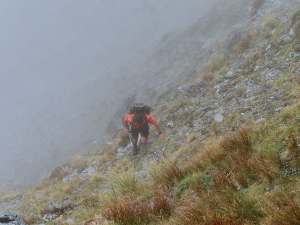Sales of tractors and farm machinery so far in 2019 are steady versus 2018 but challenges loom, says Tractor and Machinery Association (TAMA) president John Tulloch.
TAMA’s year to date figures to April 30 show 1104 sales across all sectors vs 1111 in 2018.
North Island sales fell by 4.7% to 713 (2018 - 748). South Island sales rose by 7.4% to 390 units delivered (2018 - 363).
April 2019 sales figures are down 11.7% on April 2018, says Tulloch. This is partly due to 10% fewer sales of smaller (20 - 50hp) machines typically used by small commercial operators and lifestyle block owners.
While 2018 was a record sales year (4600 units sold) Tulloch predicts 2019 sales will fall to between 4300 and 4500 units, mainly due to the decline in the smaller model sales which last year totalled nearly 1000 units.
Overall confidence in the rural sector remains strong, prompting farmers to keep buying tractors and machinery, Tulloch says. But he forsees a tightening of credit conditions, likely because of signals by the Reserve Bank on increasing banks’ equity to loan ratios to help increase its cash reserves.
“This will have the potential to affect the indebted rural sector, particularly dairy farmers who typically carry greater debt.”
Tulloch also warns of a forthcoming increase in global shipping rates – due to new emissions regulations – that will take effect by January 2020. These will require most ships to reduce sulphur emissions under the Marpol Annex VI treaty.
While New Zealand has not ratified this treaty, most visiting vessels are registered in countries that have ratified it and will be bound by the new rules. This will force ships now powered by crude oil to switch to more expensive diesel, pushing up importers’ costs and those of customers.
“There is also the impact of minimum wage rate upgrades, meaning that as the lower end of pay scales increase, then other grades would also need to be reviewed,” Tulloch says.
He says service technicians four or five years ago typically earned $28/hour but their rates now exceed $35/h.
“Yet despite these increases there is still an industry wide problem recruiting qualified staff,” Tulloch told Rural News.
“Like many other industries, the tractor and farm machinery sector must get better at attracting, inducting and retaining young people while also retaining older, more experienced staff.
“TAMA absolutely has a role in this and we need to better promote the exciting career opportunities that exist in our sector.”


















